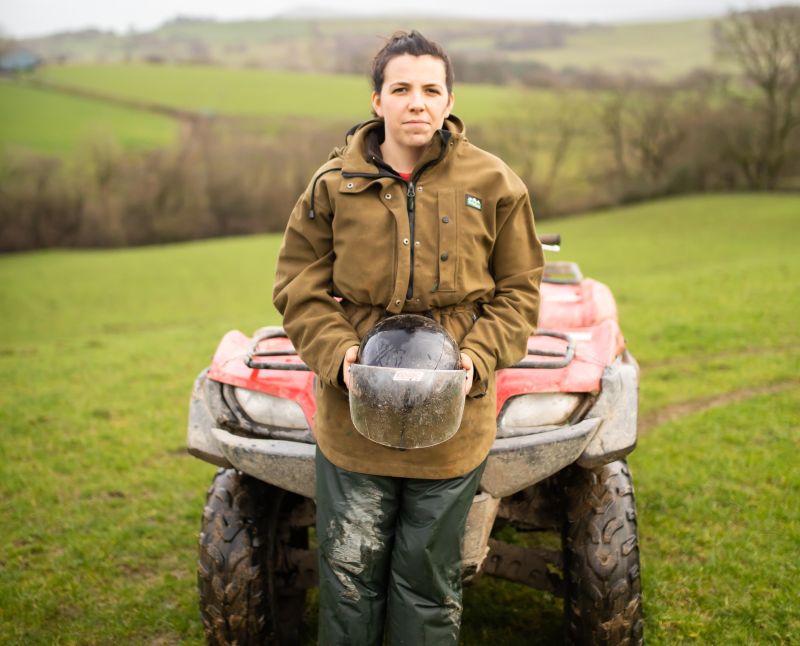
A young farmer has said she is 'lucky to be alive' following a serious accident on a quad bike two years ago which resulted in severe, life-changing injuries.
Beca Glyn experienced a major accident on an ATV in March 2018 in which she sustained a fractured skull, neck injuries and major bruising.
Although she made a recovery and returned to farming after what she describes as nine long months of rest, physio and rehabilitation, she says life may never be quite the same.
Her medical team are still unsure whether she will ever regain her sense of taste, smell and ability to sleep through the night.
The 26-year-old was helping herd sheep from a field, across a small country road and into a shed at the family farm in Betws y Coed, where her family run a flock of 1,000 sheep and herd of beef cattle.
“The sheep started moving in the wrong direction, I panicked and in that split second, thought the dog may not manage to bring the sheep back the right way but if it did, I risked driving into them,” Beca says.
She swerved sharply too quickly, tipped the quad bike which landed on top of her and hit her head on the road.
She wasn’t wearing a safety helmet - something she regrets every single day.
Thanks to her dad Glyn, president of the Farmers’ Union of Wales, and a neighbour, who were able to lift the bike off her and call the emergency services immediately, both the land and air ambulances were at the scene quickly.
Having sustained concussion, Beca doesn’t remember any of the detail at the roadside, but pays tribute to the expertise of the paramedics and to the A&E team at Ysbyty Gwynedd in Bangor where she was taken by ambulance.
Despite the ongoing effects, which she hopes will improve, Beca has made an excellent recovery and is now on a mission to raise the profile of farm safety and promote safe working practices, especially when it comes to driving farm vehicles.
“I know I’m very lucky to be alive and I’ve made huge progress, but I also know that if I had been wearing a helmet and undertaken training on driving an ATV safely, I may not have ended up in hospital at all,” she explains.
“I would give anything not to have struggled with months of exhaustion after the slightest bit of effort, and I would still be able to enjoy the wonderful smell and taste of a roast lamb dinner.
“So much changed after my accident, and despite trying different remedies and therapies, disrupted sleep patterns still affect me every day.”
These days, alongside day to day farming and her involvement with Ysbyty Ifan YFC and Eryri YFC, which she currently chairs, Beca is also in demand as a ‘farm safety’ advocate at various rural events in Wales.
She says she is determined to do all she can to raise awareness of farm safety and promote the availability of specialist training which can significantly reduce the risk of on-farm accidents.
“Almost everything we do on the farm has associated risks, from handling animals to operating machinery and from dealing with pesticides to driving tractors and ATVs, but provided you have had training, you will know what steps to take to reduce the risks of accidents.
“You can’t put a price on your health and wellbeing, as I found out the hard way.”
Tips for driving an ATV safely
• Make sure all riders receive adequate training
• Always wear a suitable helmet
• Don’t carry passengers (unless the quad bike is designed for passengers)
• Children under 13 years old are prohibited from using an ATV at work. Over-13s should only ride ATVs – of an appropriate size and power – after formal training on a low-power ATV
• Carry out safety checks and maintenance in accordance with the manufacturer’s recommendations, e.g. regularly check tyre pressures, brakes and throttle
• Secure loads on racks and make sure they are not over-loaded and evenly balanced
• Take extra care with trailed or mounted equipment and understand how they affect stability
• Stick to planned routes, where possible and walk new routes if necessary to check for hidden obstructions, hollows or other hazards
